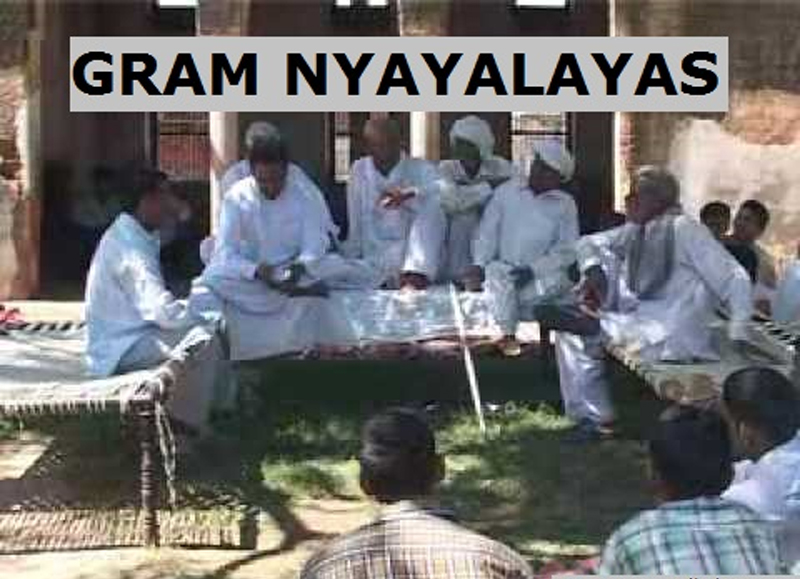Central Act made applicable but yet to be implemented
People remain deprived of accessible justice delivery system
Mohinder Verma
JAMMU, Mar 27: People of Union Territory of Jammu and Kashmir have remained deprived of most accessible justice delivery system as the administration has failed to make ‘Gram Nyayalayas’ functional even two and half years after the applicability of the Central Act.
The Gram Nyayalayas Act, 2008 was enacted by the Parliament for establishment of Gram Nyayalayas or village courts for speedy and easy access to justice system in the rural areas. The Act came into force with effect from October 2, 2009 in whole of the country. However, it became applicable to Jammu and Kashmir following abrogation of Article 370 and as per the provisions of the Jammu and Kashmir Reorganization Act, 2019.
In the month of June 2020, the Department of Law, Justice and Parliamentary Affairs of J&K UT issued notification mentioning that the headquarters identified for the Dehi Adalats shall be deemed to be the headquarters of the Gram Nyayalayas.
It is pertinent to mention here that in the year 2013, the then Government of Jammu and Kashmir made efforts to establish Dehi Adalats on the pattern of Gram Nyayalayas yet the attempt failed to yield the results even after identification of headquarters of Dehi Adalats due to lack of manpower.
In the month of January 2021, the Chief Justice of Common High Court of J&K and Ladakh constituted a high-level committee comprising Justice Dhiraj Singh Thakur, Justice Sindhu Sharma and Justice Puneet Gupta to look into the operationalization and functioning of the Gram Nyayalayas within the jurisdictional limit of the High Court with a view to make the institution a robust and credible pillar of justice delivery system.
However, despite all this the Gram Nyayalayas have not been made functional till date and this has been pointed out by the Department-Related Parliamentary Standing Committee on Personnel, Public Grievances, Law and Justice in its report tabled in the Parliament few days back.
“J&K has notified 20 Gram Nyayalayas—one for each district but none of them has been made functional till date. Due to this, not even a single penny has been released by the Union Ministry to the J&K UT”, the Parliamentary Panel has pointed out.
The Gram Nyayalayas were envisaged to make justice delivery more accessible and affordable for the people at the grassroots. However, they are yet to take off and this is in spite of the fact that financial assistance is being given by the Centre to operationalize them, the Standing Committee said and recommended that Union Government as well as J&K Government should ponder seriously over making the Gram Nyayalayas functional as early as possible.
To facilitate setting up of Gram Nyayalayas, Central Assistance up to Rs 27.60 lakh is provided per Gram Nyayalaya for meeting the non-recurring expenditure limited to Rs 18 lakh (Rs 10 lakh for office building, Rs 5 lakh for vehicle and Rs 3 lakh for furnishing the office) and recurring assistance for 50% of expenditure up to a ceiling of Rs 3.20 lakh per annum per Gram Nyayalaya for a period of first three years.
The Gram Nyayalaya scheme has been extended by the Union Government with no change in the Central Assistance for a period of 5 more years—-from 01.04.2021 to 31.03.2026 with a budgetary outlay of Rs 50 crore.
“The inordinate delay in making village courts functional is notwithstanding the fact that Department of Justice of the Government of India is repeatedly requesting the UT administration to take action on this front”, the Parliamentary Panel said, adding “further, at the request of the Department, Ministry of Panchayati Raj has also written to the UT to undertake adequate campaign activities to generate awareness among the Panchayati Raj Institutions that in turn can sensitize the general public for effective use of the Gram Nyayalayas”.
Meanwhile, the Parliamentary Panel has pointed out that a total of 59162 cases (11106 civil, 7085 criminal and 40998 writ) were pending in the J&K High Court in 2020. During the year 2021, the pendency declined to 48318 cases (6555 criminal and 30412 writ).


